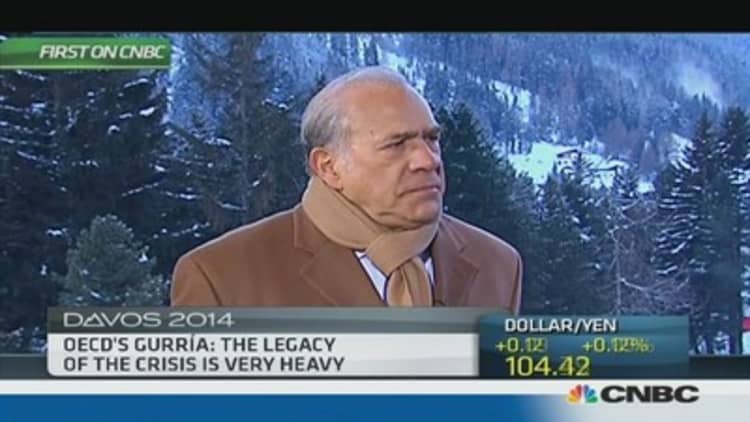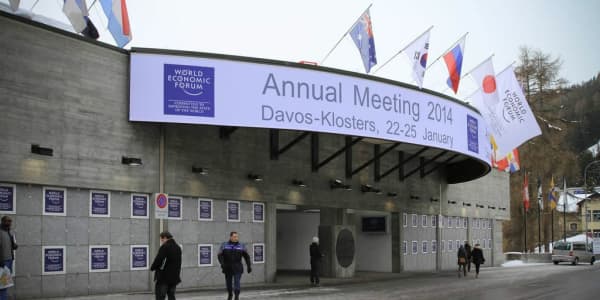
The secretary general of the Organisation for Economic Co-operation and Development (OECD), told CNBC at the 2014 World Economic Forum that the legacy of the global financial crisis was "very heavy."
"Things are improving and we've learned lessons, but the legacy of the crisis is very heavy," Angel Gurria told CNBC in Davos on Wednesday. "You've got slow growth, high unemployment, growing inequalities and you've got a cataclysmic reduction in [public] trust in the institutions we've built over the last 100 years. That makes it very difficult for a pick-up."
He said that a lack of investment and job growth were still major problems and that growth would not be forthcoming if these were not addressed.
"There are two problems: investment is not happening and investment is tomorrow's growth - that should concern us a lot and the other problem is the mismatch between [workers'] skills and needs in the market," he warned.
"That has to be fixed...the most important thing is jobs, jobs, jobs [and] that part of the recovery is not yet obvious."
Gurria has not been shy in voicing his concerns over the global impact of the U.S. Federal Reserve's stimulus program, telling CNBC last year that the world needed the U.S. economy off "steroids" and for normality to return to financial markets.
Gurria remarked that there needed to be structural improvements to global economies particularly as "fiscal and monetary measures are running out of steam."
While the Fed decided to reduce its stimulus program in December, there are concerns that the European Central Bank to do more to stimulate the economy, particularly in the face of disinflation in the 18-nation euro zone.
Inflation figures for the 18-country currency bloc are closely watched by the European Central Bank (ECB), which cut its main interest rate to 0.25 percent from 0.5 percent following October's surprisingly low inflation data but the downward pressure on prices has continued in Europe, according to the most recent inflation data from the euro zone.
Gurria agreed that the growth engine of credit, investment and trade was still going at "half speed" in major economies like Europe but said "to be fair to the ECB, they've done a great job."
"It's not like the Fed with one currency and one set of decisions and one board and it;s not kike Japan with one country and currency, here you have 18 countries."
"There is a limitation [in the euro zone] with all the countries [as to] the bonds you can buy -- which bonds do you buy? There's no such thing as euro bonds."
This is a developing news story, please check for further updates.





